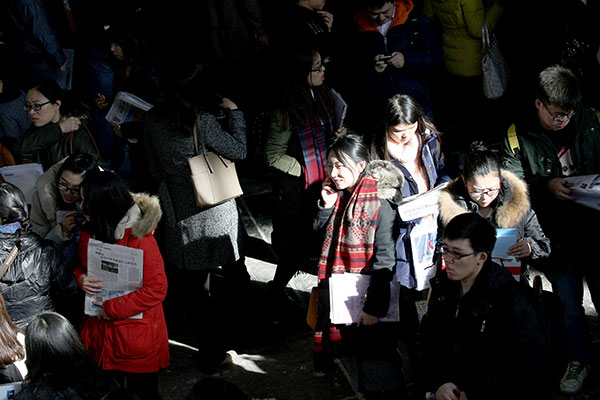 |
|
More than 18,000 positions were provided during a job fair for graduating students in Beijing on Tuesday. Wang Zhuangfei / China Daily |
With China seeking to reduce its overcapacity in the coal and steel sectors as part of its push for economic restructuring, some 1.8 million workers will be transferred or laid off according to government figures.
However, some Western media have claimed up to 6 million workers are losing their jobs, and any official voice from China seeking to counter such misinformation is accused of covering up the facts.
These Western media outlets with tinted spectacles always look at China's economy and its domestic problems from a negative perspective, and often interpret talk of China's problems as the truth. For instance, when Xu Shaoshi, China's top economic planner, denied there would be a new round of "redundancies" at a news briefing on Sunday, it was dismissed as merely the "political correctness" required by China's authorities.
Yet any prediction about a surge in layoffs in China is speculation based on a lack of basic knowledge about the actual situation in the country. China's effort to reduce excess production will lead to layoffs or the transfer of workers from overproducing sectors to others, but this is not comparable to the reform of State-owned enterprises China launched in the 1990s, in which the streamlining of problematic SOEs resulted in millions of workers being laid off, because of its much smaller economic scale and immature employment market at that time.
The ongoing overproduction reductions will involve only a few sectors and come at a time when the country boasts a much larger economic scale and strong reemployment capabilities, since a much better environment has been created for small enterprises and startups and the service sector is more developed. All these mean China now faces less pressure and challenges to social stability than it did in the 1990s.